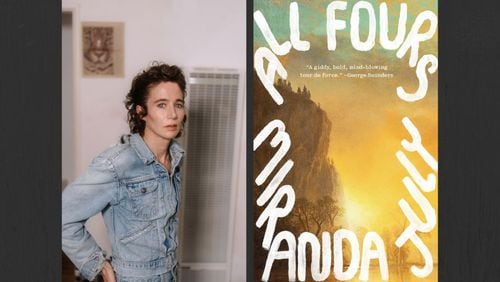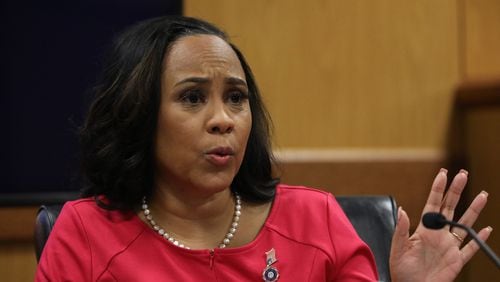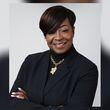Midlife crisis is a topic typically associated with men and often invoked as a punchline, but New York Times bestselling author, filmmaker and artist Miranda July gives it careful consideration in her new novel “All Fours” (Riverhead Books, $29).
“I think, like everyone else, it seemed kind of like a joke, and then I came to the middle of my life and felt that, oh, this is such a dramatic perspective shift that if you’re not having some kind of crisis maybe you’re asleep at the wheel,” July said, speaking from her studio in Los Angeles.
“All Fours” is an intimate examination of a woman’s experience entering middle age told from July’s singular perspective that is equal parts bleak, whimsical, obsessive, preposterous, poignant and profound.
Although fiction at its core, the book’s unnamed narrator shares many similarities with July. They’re both “semifamous” artists in their middle years living in Los Angeles with husbands who work in showbiz and have a single child. They both find it necessary to create a space away from their families in order to pursue their creative endeavors. For July, that meant turning the home she owned before she married into a studio and staying there one night a week. For the narrator, well, it’s a little more complicated than that.
The book begins with the narrator preparing for a cross-country drive to New York City where she plans to spend a week visiting friends and going to museums. But she barely gets out of town when a stop to check her tire pressure and eat lunch leads to an encounter with Davey, a Hertz rental car agent, with whom she inexplicably becomes captivated. When she decides to stay overnight at a roadside motel, her trip takes a different route as she embarks on a journey exploring her sexual desire.
Said July, “I tried to play with lust because … maybe desire can be sort of a tool that can help you transform and learn things about yourself.”
Essential to any story about a woman’s middle years is the impact of perimenopause, and like most things she finds interesting, July scrutinizes the topic from every angle. The narrator is horrified to discover she’s entered that phase of her life and goes down a rabbit hole of fear and anxiety.
“For a woman, so many real biological changes are happening that are understudied and undertested so it actually is truly mysterious, besides the mysteries of one’s own soul. … It’s a pretty huge territory that’s unmapped and shrouded in shame as if there’s something essentially humiliating about it, which I can’t think of why that is except for men deciding that,” said July. “Historically, you’re done. You’ve bore your children and now you don’t remind (them) of (their) own virility.”
When the narrator realizes that being the kind of wife her husband wants is at odds with being the kind of person she wants to be, her biggest challenge yet comes in rectifying that dilemma without inflicting harm.
“Most people and most mothers, it’s pretty high on the list not to cause pain to your family and yet you have to reconcile with your truth. … There’s going to be risk involved. I think the narrator is weighing risk the whole time — risk against freedom. And trying to figure out what is best for her child, too. If she’s not herself at home, then her child doesn’t really know her, and how can that be good?”
Considering the similarities between July and the narrator, it’s easy to ascribe more truth to “All Fours” than it merits. A New York Times article last week revealed that July has split from her husband, filmmaker Mike Mills, and now lives in the house behind her studio, but that came after the book was put to bed.
“The way that my life evolved when I was done with the book, making this home for myself a few blocks away from where I was living, I sort of feel like the book did that,” said July. “I don’t think I could have changed my life without that narrator. The book gave me all this confidence and this kind of sturdy feeling. Like, I’m not making up these feelings! Look, I’ve got hundreds of pages here!”
A Cappella Books presents Miranda July in conversation with Virginia Prescott on May 17 at SCADshow. Purchase tickets at acappellabooks.com.
Suzanne Van Atten is a book critic and contributing editor to The Atlanta Journal-Constitution. She may be reached at Suzanne.VanAtten@ajc.com






